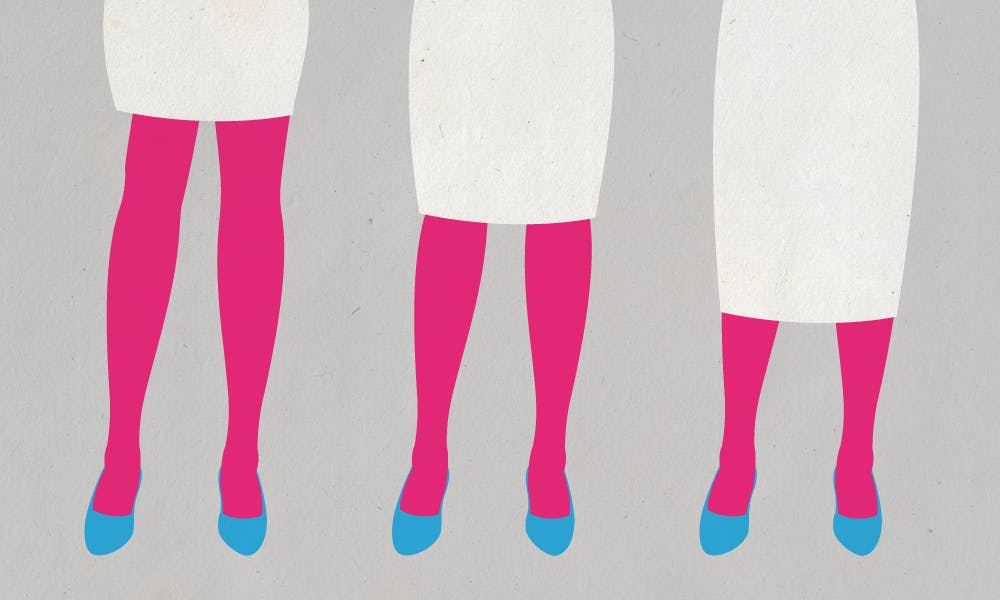In light of the fact that 25.9% of undergraduate women at Penn reported having experienced non-consensual sexual contact sometime in college, it is crucial that we address the many misconceptions surrounding sexual assault on college campuses. “Rape culture” defines a social culture in which rape is normalized and pervasive, particularly due to male sexual aggression, victim-blaming, and gender inequality.
Don’t blame it on the alcohol.
“But I was blacked out.” Too often you will hear the perpetrator defending himself or herself in this way — but being blacked out is absolutely no excuse. If you are caught driving under the influence, you would still be held accountable; being drunk and committing sexual assault shouldn’t be perceived any differently.
It’s all too common to blame our mistakes and regrets on alcohol, yet this only perpetuates misogyny and rape culture, namely the misconceptions regarding sexual assault and alcohol usage. Women shouldn't have to feel like they are putting themselves at risk by drinking more. As American feminist writer Jessica Valenti aptly describes in her book "The Purity Myth": “Women don’t get raped because they were drinking or took drugs. Women do not get raped because they weren’t careful enough. Women get raped because someone raped them.” The lesson young girls should be taught to believe is not that they can prevent sexual assault simply by drinking less. It is never the victim’s fault for drinking, but rather the perpetrator’s fault for taking advantage of another human being.
Especially on college campuses, the difference between “drunk sex” and sexual assault is sometimes unclear; while drunk sex is often unconsciously viewed as a college rite of passage, sexual assault is unacceptable no matter the excuse, and it is a crime punishable by law. Drunken college hookups are not the same as rape. In her victim’s statement from the internationally publicized Stanford rape case, Chanel Miller “Emily Doe” stated: “Alcohol is not an excuse. Is it a factor? Yes. But alcohol was not the one who stripped me, fingered me, had my head dragging against the ground, with me almost fully naked. Regretting drinking is not the same as regretting sexual assault.”
It doesn’t matter what you wore.
If a woman wears a more revealing outfit, or anything that shows skin for that matters, it by no means signifies that she is “asking for it.” A woman cannot simply avoid being raped as long as she dresses or acts more conservatively. The truth is that rape can happen to anyone, no matter how careful they may be. Additionally, discussing ways to avoid being sexually assaulted merely places blame on the victim; it is not the victim’s fault, but the perpetrator’s.
We must stop condoning male sexual aggression and toxic masculinity, along with the dehumanization and objectification of women. Even words like “bitch” or phrases like “stop acting like a girl” further perpetuate male rape culture; any insulting language based on gender should be unacceptable if we are to attempt any change in these harmful stereotypes.
SEE MORE FROM BRIDGET YU:
It’s far more common that the perpetrator is an acquaintance, not a stranger.
In fact, 8 out of every 10 rapes are committed by an acquaintance, or somebody known to the victim. Sexual assault myths must be properly addressed and debunked, and one approach is to target the stereotypes. For instance, rape is not simply a drunk guy having non-consensual intercourse with a drunk girl at a fraternity party; it can be much harder to identify at times. If you say “no” to having sex with your partner, and they still continue to do so, that is rape. If you’ve been sexually active with someone before, but you say “no” this time and they continue, that is rape.
There are many specific misconceptions regarding acquaintance rape, or non-stranger sexual assault. For example, sometimes people say “no” when they mean “yes,” in an effort to “play hard to get.” Going home with them means you want to have sex. Kissing and foreplay means intercourse will follow and that you want to take it “all the way.” These aforementioned myths are unfortunately ingrained in our society — all common beliefs of perpetrators who commit non-stranger sexual assault.
As college students, there’s certainly no doubt that we must learn to respect ourselves and our boundaries, as well as those of others. However, we must also acknowledge that many people, including perpetrators themselves, are completely unaware and uneducated about the truths regarding sexual assault and violence. Additionally, it is often very difficult for victims to feel comfortable speaking up and reporting perpetrators. To combat this (and in honor of Sexual Assault Awareness Month), we must openly talk about rape culture, and we must start now.
RAINN (Rape, Abuse & Incest National Network) is the nation’s largest nonprofit anti-sexual assault organization. They created the free and confidential National Sexual Assault Hotline (1-800-656-HOPE), which operates 24 hours and 7 days per week.

BRIDGET YU is a College sophomore from Los Angeles, Calif. studying psychology. She plans to attend medical school and specialize in psychiatry. Her email address is bridgtyu@sas.upenn.edu.









